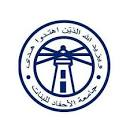Course description:
The course focuses on the theoretical concepts and practical management and leadership skills required for working in complex national, regional, and global health environments and programs. The course focuses on the issues and challenges associated with leading organizations and managing people as well as practical management skills and personal leadership development. The course will examine these topics using a multidisciplinary approach that employs different learning techniques as well as addressing issues from varied dimensions.
Course Learning Outcomes
By the end of this course, the students will be able to:
1. Demonstrate an understanding of key management and organizational theories and an understanding of the interface between theory and practice in the management of health care systems.
2. Demonstrate an understanding of the difference between management and leadership,
3. Describe the components of human resource management.
4. Describe sources of power and influence.
5. Describe techniques for managing organizational change and for building effective and adaptive health care systems.
6. Describe the elements of strategic planning.
7. Demonstrate skills in leadership, team building and conflict management.
8. Describe the development and management of networks and strategic alliances.
9. Apply the principles of leadership and management to solve complex problems in public health settings.
Methods of Teaching:
- Lectures.
- Group work seminars.
- Case studies analysis
Course evaluation
- Group work presentation 15 %
- Case studies 15 %
- Midterm 20%
- Final exam 50%
Course Content
Topic one: Management and leadership (three sessions)
Session 1: Definition, concept of management.
Introduction to project/program management
Session 2: Managerial steps in decision-making
Session 3: The Manager vs. the Leader &Management and Leadership Styles
Topic Two: Management Functions:
Session 4: Project/Program Design
Session 5: Strategic Planning
Session 6: Time Management
Session 7: Human Resources Management & Conflict Resolution
Session 8: Team Building
Session 9: Monitoring and Evaluation of programs and projects
Session 10: Midterm test (20%)
Topic Three: Leadership Theories & Types:
Session 11: Overview of Leadership Theories & Models
Session 12: The Strategic Leader (building coalitions, networks & alliances)
Session 13: The Visionary Leader (developing a vision & mission & goal-setting)
Session 14: The Transformational Leader–Leading Evidence-Based Decision Making
References:
· MSH Managers Who Lead (2008). Available at: http://projects.msh.org/Documents/upload/MWL-2008-edition.pdf
· WHO Management of health services delivery webpage at: http://www.who.int/management/programme/RH/en/
· Leadership Training and Development Outline (nwlink.com)
Course Assessment
- Group work presentation 20 %
- Case studies 30 %
- Midterm 00%
- Final exam 50%
Course Policy
Students are expected to attend all the weekly sessions. A student who misses 25% of the total contact hours of this course for valid reasons is asked to withdraw from the course and receives the grade (W). If the student has no valid reason is considered failed and receives the grade (F).
- Teacher: Sumaia Badawi
- Teacher: Randa Hamza Ibrahim Gindeel
- Teacher: Omeima Salih
- Teacher: Osama Salih
- Teacher: Admin User
